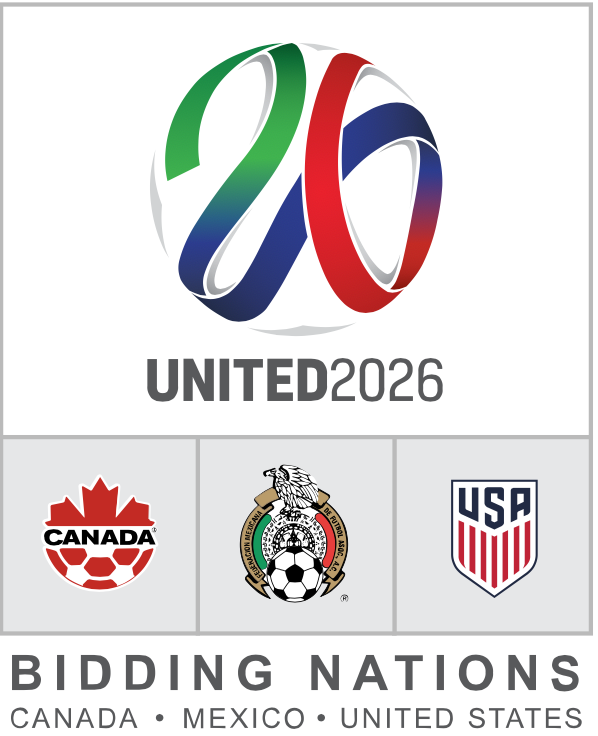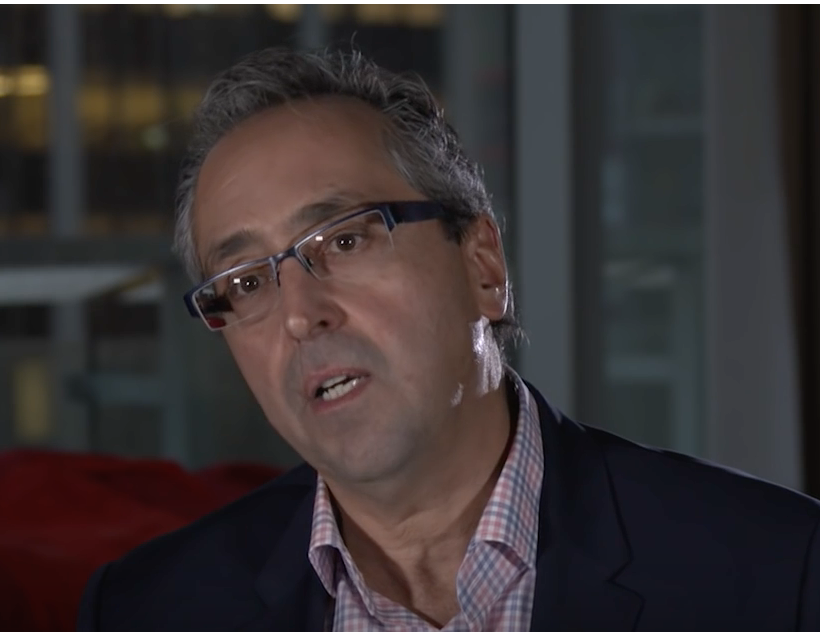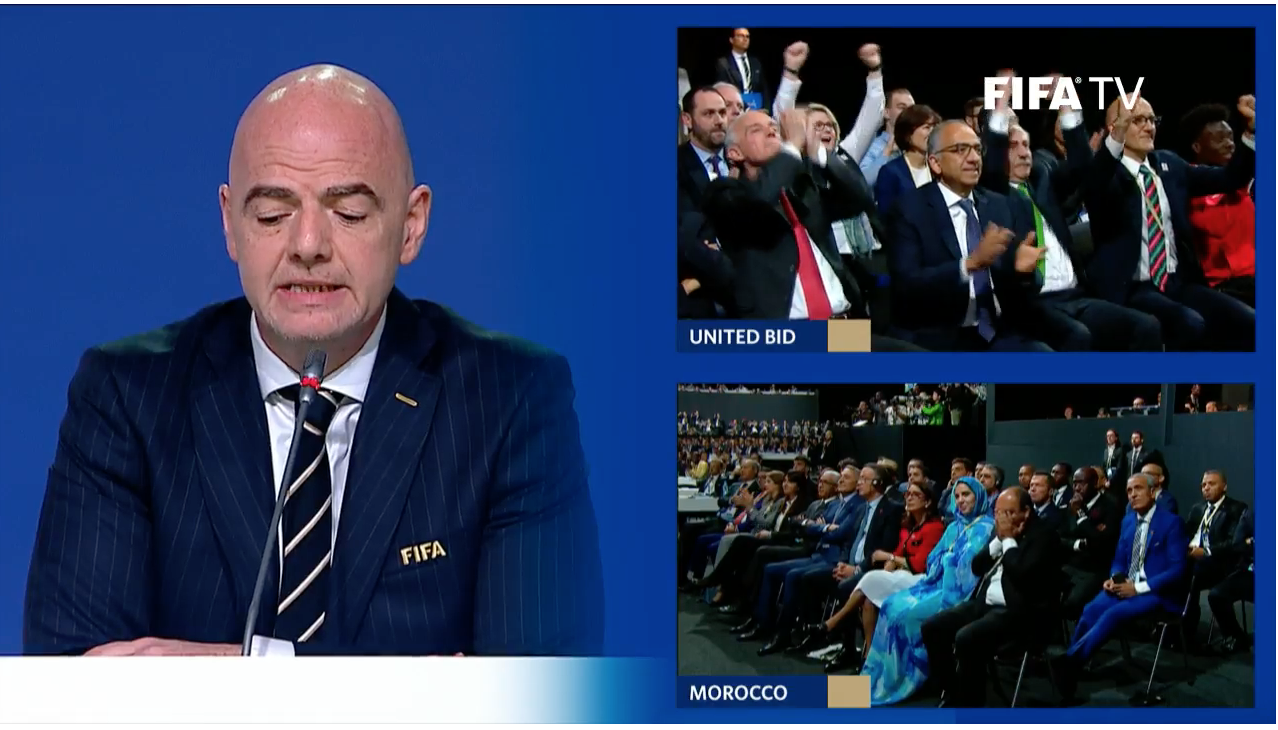
Bob Mackin
With Vancouver’s participation in the United Bid for the 2026 FIFA World Cup hanging by a thread, the general secretary of the Canadian Soccer Association issued an ultimatum to the NDP government and Vancouver city hall three days before the bid book’s deadline.

Peter Montopoli (CSA)
At 7:58 p.m. on March 13, Peter Montopoli wrote to Deputy Tourism Minister Sandra Carroll, B.C. Pavilion Corp. CEO Ken Cretney and Vancouver Sport Hosting manager Michelle Collens.
He set 8:30 a.m. March 14 as the deadline for Vancouver’s bid to be included.
“The City of Vancouver and Province of British Columbia must provide the following documents: An unaltered and duly executed Host City Agreement and unaltered and duly executed Stadium Agreement,” wrote Montopoli, a director on the United Bid Committee. “We will require a confirmation email on the direction being taken in advance of the deadline to ensure that the City of Vancouver continues as a Candidate Host City and is included in the United 2026 Bid Book. Failing to meet these conditions, the City of Vancouver will be removed as a Candidate Host City.”
On March 13, Carroll had written to the United Bid Committee’s lawyer, Michael Kuh, reiterating the desire for B.C. and PavCo to host 2026 World Cup matches at B.C. Place Stadium, but not without further information and clarification from, and negotiation, with FIFA.
“We are well-equipped to continue hosting and supporting international competitions and expect our partnerships with the Government of Canada, the United States and Mexico would mean a successful FIFA World Cup in 2026,” Carroll wrote. “We agree, in principle, with many of the terms contained in the Stadium Agreement, we do have some concerns about the costs to British Columbia taxpayers. Certain key terms of the Stadium Agreement are so broad in scope that, based on our legal counsel advice, we believe that they may pose unacceptable risks to PavCo and its shareholder, the Province.”
Carroll had included the March 9 letter by Cretney, who was concerned with several unknown costs: security, securing land near the stadium for related events, a temporary grass field and backup field, inflation and the ability of FIFA and the CSA to unilaterally amend the contract.
Cretney’s letter, also obtained under the freedom of information law, said the proposed terms of the stadium agreement were “unnecessarily broad, create unacceptable risks and require further clarification and information.”
UPDATE (June 15): Cretney’s letter was not warmly received after it arrived in New York on March 10 at the Latham and Watkins law firm. United Bid executive director John Kristick emailed Cretney at 8:41 a.m. on March 11, after a discussion with members of the United Bid’s board and partners at the CSA.
Kristick had worked as an executive between 1992 and 2008 with ISL, Kirch and Infront, the notorious Swiss sports marketing firms that enjoyed cozy relationships with FIFA during the corrupt presidencies of Joao Havelange and Sepp Blatter.
“Unfortunately, the Vancouver submission does not meet the standard required for inclusion with the United Bid’s submission for FIFA,” wrote Kristick. “In order for Vancouver to go forward with the bid, you must provide to us an unaltered and duly executed original of the Stadium Agreement by 12 PST on Monday, March 12. We are prepared to have a personal courier authorized by the United Bid Committee at your offices tomorrow to retrieve the documents… Canada Soccer will contact you today to discus this matter further and determine if there is a way forward. ”
Montopoli followed-up on March 12, before 8:30 a.m., restating that noon deadline. It is not clear why United Bid eventually stepped back from that deadline.

FIFA president Gianni Infantino announcing the United Bid to host the 2026 World Cup (FIFA)
At 9:26 a.m. on March 14, almost an hour after the passing of the deadline he set, Montopoli sent an email rejecting Vancouver and B.C., because “The conditions set out in the March 13th email have not been met.”
The message was copied to FIFA vice-president Victor Montagliani, CSA president Steve Reed and Kristick.
The U.S.-led bid with Canada and Mexico submitted its detailed proposal to FIFA on schedule March 16, without Vancouver.
Chicago, Minneapolis and Glendale, Arizona were also not included, because they had similar concerns about uncertain costs. The Alberta government withdrew its support for Edmonton, which remained in the bid book.
In March, theBreaker reported that FIFA demands the 2026 World Cup host agree to pay all security costs, give FIFA a 10-year tax holiday, relax labour laws, and allow the import and export of unlimited sums of foreign cash.
In a statement issued on March 14, B.C. Tourism Minister Lisa Beare said that “should the bid committee reconsider, our door remains open to bringing some of the 2026 World Cup games to Vancouver.”
Beare’s statement said B.C. made “numerous attempts to clarify the risks and obligations faced by British Columbians.
“So far, the bid committee has rejected our requests to clarity how much British Columbians could be expected to contribute. And they have declined to negotiate with the province regarding the concerns we raised.”
Bureaucrats in the sport division of Beare’s ministry drafted an internal analysis, marked confidential, on Feb. 2 to compare the 2026 World Cup bid phase with the 2015 Women’s World Cup, which ended at B.C. Place. The heavily censored document included columns on security requirements, cash and in-kind contributions from taxpayers, economic impact, cost-sharing and indemnification, budget and risk/optics. The estimated TV audience in 2026 is a cumulative 26 billion, compared with a total 500 million-plus in 2015.
theBreaker obtained the document after asking for the NDP government’s cost-benefit analysis for the 2026 bid. It withheld information claiming policy advice, fear of harm to governmental relations or negotiations, and fear of harm to government finances. The Feb. 2 document came after a Jan. 29 meeting held by Carroll about the bid. The NDP government is refusing to release any documents from the Carroll meeting, claiming they also contain legal advice and third-party business information.
On June 13 at the FIFA congress in Moscow, United Bid beat its only rival, Morocco, by 134 votes to 65. One person voted none of the above. Toronto, Montreal and Edmonton are in the running to host some of the 10 games allotted to Canada. Mexico will also get 10 games.
The U.S., which hosted in 1994, will stage 60 matches, including the opener and the final, in the first World Cup to feature 48 nations.
Support theBreaker.news for as low as $2 a month on Patreon. Find out how. Click here.
TAC-2018-82236-UnitedBid by BobMackin on Scribd
TAC-2018-82220-2026 by BobMackin on Scribd











